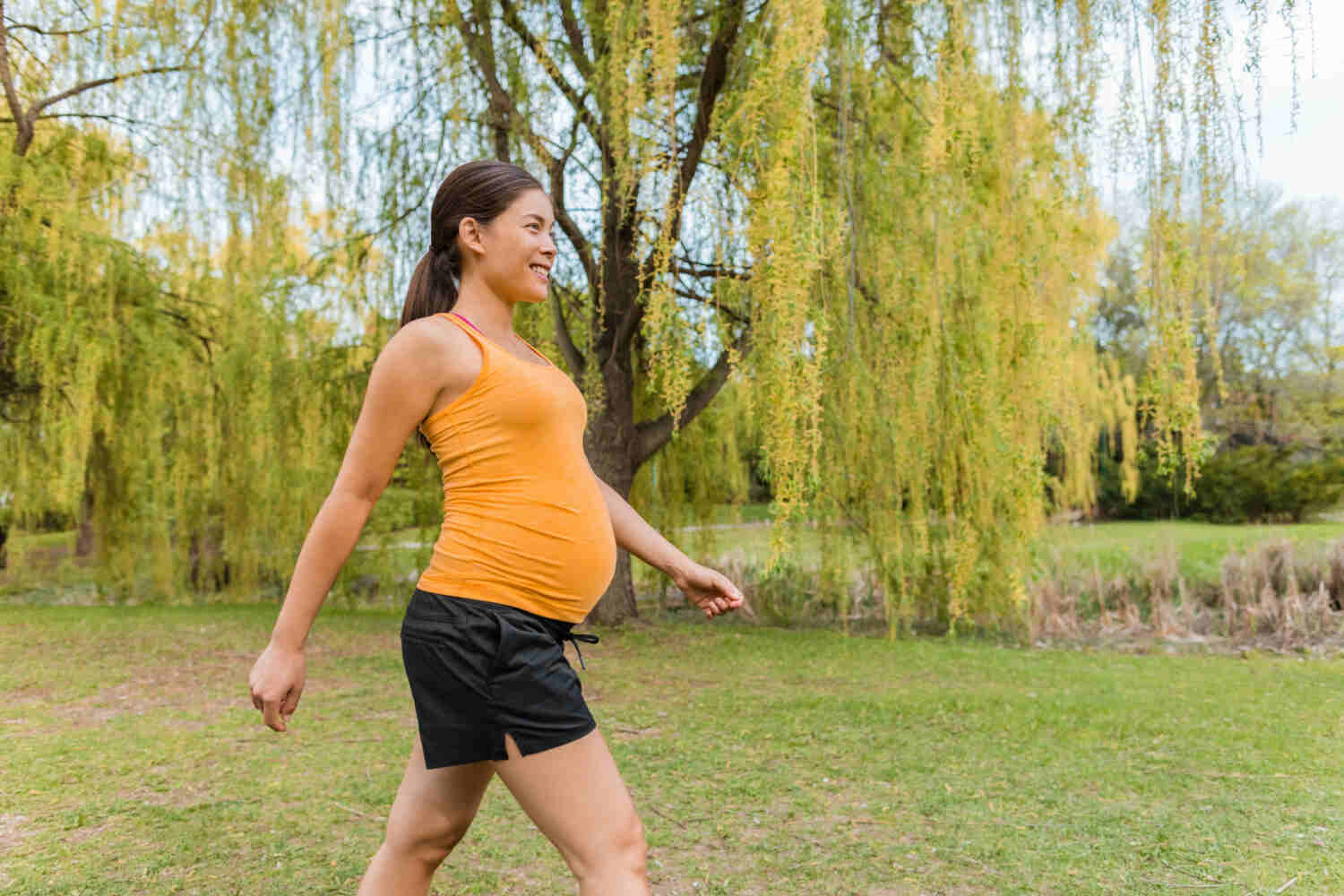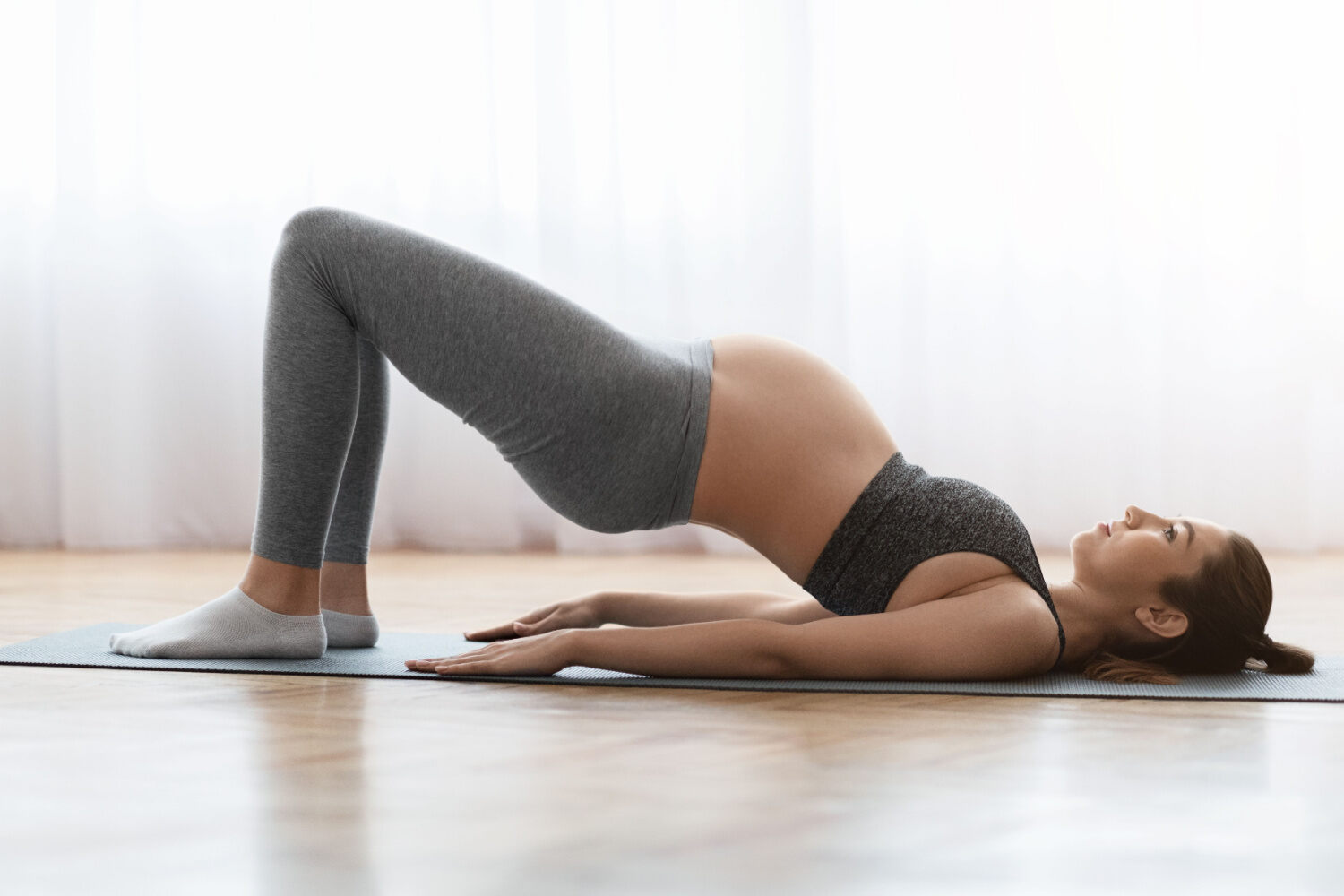
The tiny thyroid gland assumes a critical role when it comes to how your body functions. One of the most common factors that impede conception is hypothyroidism (1). With time, the cases of expecting mothers having Hypothyroidism are increasing (2).
Hypothyroidism is a condition that can develop complications in pregnancy (3), but the good news is, that there are medicines and some very natural ways to treat this condition. Here is everything you need to know about the 8 effective exercises for hypothyroidism during pregnancy.
In This Article
- What is Hypothyroidism?
- How Does Hypothyroidism in Pregnancy Affect the Baby?
- 8 Exercises for Hypothyroidism in Pregnancy
- Can Exercise Help in Reducing Hypothyroidism in Pregnancy?
- How Can I Avoid Hypothyroidism Affecting My Pregnancy?
- FAQ’s
What is Hypothyroidism?
The thyroid gland is a tiny little butterfly-shaped gland in our neck. It has a lot of important functions of which the main is to provide energy to our body and regulate the body temperature. It also plays a major role in running the metabolism of our body. Hypothyroidism is a condition where your body doesn’t produce enough thyroid hormone (4).
Since the thyroid hormone regulates the functioning of the central nervous system and your reproductive system, it is essential that you get the levels under control. Your gynecologist along with an endocrinologist can guide you in this aspect. Pregnancy places an increased demand on the thyroid gland, and hence it becomes important to regulate the levels (5).
How Does Hypothyroidism in Pregnancy Affect the Baby?

Studies have shown that babies born from mothers having hypothyroidism have lower IQs than those born from normal mothers. Also, the chances of miscarriages and stillbirths are higher (3). Before birth, a baby’s thyroid needs are met by the mother’s thyroid till about 10 weeks of gestation when fetuses develop their own thyroid glands (6).
Studies show that children born to mothers with untreated hypothyroidism often exhibit developmental delays and face difficulty in school. The more severe the hypothyroidism in the mother, the greater the risk of developmental problems (7).
Now the good news is, once detected, the chances of treatment and normalization of the levels are high. Your doctor will place you under medication which helps bring the functioning of your thyroid gland back to normal.
[Read : Top Five Risks of Hypothyroidism During Pregnancy]
8 Exercises For Hypothyroidism in Pregnancy
Other than medication, another very effective way of keeping hypothyroidism under control during pregnancy is through exercise. Yes, you heard right, you are pregnant, but you still need to do light workout sessions to help your thyroid glands work properly. Here are 8 exercises that you can do every day; you will see a welcome change in your thyroid levels (8).
NOTE: Consult your doctor before starting any of the below exercises during pregnancy. It is important to have strict supervision from a doctor or your health care provider before doing any exercise when you are pregnant.
1. Work Out the Thyroid Gland

Working on the thyroid gland stimulates and allows it to work better. 5-10 minutes of doing this every day can help you get desired results for hypothyroidism during pregnancy. However, practicing any exercise during pregnancy needs approval from your doctor or healthcare provider.
2. A Brisk Walk of 10 Minutes

A brisk walk of 10 minutes either in your garden area or on the treadmill. Since heavy aerobics will not be your pick during pregnancy, this kind of slow walking during pregnancy will give a cardio boost which will help in combating hypothyroidism.
3. Leg Lunges

Leg lunges can help you feel a slight feeling of stretch in your thigh region and this is exactly what we are aiming for. Try doing 10 lunges on each leg, slowly and steadily. Do not over-exert, it is important to listen to your body when you are pregnant. Do not work on any new exercise until you get the go-ahead from your doctor/health care provider or your trainer.
4. Squats

Hypothyroidism makes your thighs and hip area bulky and the more bulky your thighs, the less space your baby gets to grow in the sac. Squats help a lot to shed a few pounds from your thigh area which is extremely helpful for your growing baby.
[Read : Squats During Pregnancy]
5. One-Leg Lift

Leg lifts during pregnancy can help build strong back and abdominal muscles. Leg lifts must be modified according to the stage of pregnancy you are in. Hence, it is always better to consult your doctor before starting any exercise. Do not hesitate to inform your trainer about your pregnancy.
6. Water Aerobics

Performing water aerobics during pregnancy can help activate an underactive thyroid gland. Swimming, doing gentle pool aerobics, or water walking helps support the belly and relieve pressure on the spine and pelvis. It gives a cardio boost and hence helps to stimulate the thyroid glands.
7. Bhujangasana

NOTE: This yoga aasana must never be attempted without consulting your doctor and yoga trainer.
During this pose, the neck and throat muscles stretch, improving thyroid function. Pregnant women with back pain or neck pain should also do bhujangasana as it helps in strengthening and toning muscles. However, it is recommended safe only during the early days of pregnancy and not after that.
[Read : Is Surya Namaskar Safe During Pregnancy]
8. Setu Bandhasana (Bridge Pose)

Bridge pose, or setu bandhasana, is an effective yoga for thyroid disorders, especially hypothyroidism. This pose stretches the neck and stimulates blood circulation in the thyroid gland. Even though this is one of the top exercises for hypothyroidism in pregnancy, pregnant women should avoid this during the last stage of pregnancy.
Can Exercise Help in Reducing Hypothyroidism in Pregnancy?
The thyroid gland plays a major role in regulating the metabolism of your body. Hormones released by it travel all throughout the body, but when it malfunctions the body is deprived of it. During this time exercise helps a lot (8). Especially Hypothyroidism leaves you feeling very sluggish. You also gain weight along with the baby’s weight. You will have to push yourself to do exercises because it is the only way your body is going to achieve a higher metabolism rate other than the given medications.
How Can I Avoid Hypothyroidism Affecting My Pregnancy?

Irregular functioning of the thyroid gland during pregnancy may lead to maternal and fetal complications. To avoid this, it is important to let your doctor know if you had a history of thyroid dysfunction before getting pregnant. Here are a few tips that can help you keep your hypothyroidism in control during pregnancy
- Talk to your doctor
- Medications based on your condition
- A proper healthy diet
- Aerobic exercises
To make sure everything is working fine, your doctors may advise regular thyroid screening tests during pregnancy.
The above-mentioned are very light exercises and are considered pregnancy-safe. Always talk to your doctor about any exercises you are doing or plan to do. Keep in mind that the safety of you and your baby is vital. Always remember, exercises can help in alleviating thyroid symptoms, but in no way can replace any medications prescribed by your doctor. Keep up with your medications and have a positive attitude.
FAQ’s
1. Does Hypothyroidism Affect My Unborn Baby?
Hypothyroidism, if left untreated can lead to babies born with low IQ and other cognitive complications. Hence, it is always important to get the thyroid screening test done before planning for a baby.
2. Can Hypothyroidism Cause Miscarriage During Pregnancy?
Hypothyroidism may lead to an increased risk of miscarriage and other complications during pregnancy. A study published in NCBI talks about repeated miscarriages in women who got pregnant with a history of thyroid dysfunction (9). Hence it is important not to ignore thyroid problems during pregnancy.
References
- Role of hypothyroidism and associated pathways in pregnancy and infertility: Clinical insights – [https://www.ncbi.nlm.nih.gov/pmc/articles/PMC7605301/]
- Prevalence of hypothyroidism in pregnancy: An epidemiological study from 11 cities in 9 states of India – [https://www.ncbi.nlm.nih.gov/pmc/articles/PMC4855970/]
- Maternal and fetal complications of the hypothyroidism-related pregnancy – [https://www.ncbi.nlm.nih.gov/pmc/articles/PMC3150006/]
- Hypothyroidism research: A long-term effort – [https://magazine.medlineplus.gov/article/hypothyroidism-research-a-long-term-effort]
- Thyroid function in pregnancy – [https://www.thyroid.org/patient-thyroid-information/ct-for-patients/august-2017/vol-10-issue-8-p-5-6/]
- Hypothyroidism in pregnancy – [https://www.ncbi.nlm.nih.gov/pmc/articles/PMC3354841/]
- Thyroid Disorders and Pregnancy – [https://www.chop.edu/pages/thyroid-disorders-and-pregnancy]
- Effect of aerobic exercises on the thyroid hormones in treated hypothyroid pregnant women – [https://japer.in/storage/models/article/d053Q4gDcfGBC6i8G8qenLKq4XyASf6uSLXZYCiOQqUnzcjvBcNc7ZDQzfeG/effect-of-aerobic-exercises-on-the-thyroid-hormones-in-treated-hypothyroid-pregnant-women.pdf]
- Recurrent pregnancy loss in patients with thyroid dysfunction – [https://www.ncbi.nlm.nih.gov/pmc/articles/PMC3603072/]
Read Also: 10 Dietary Tips For Hypothyroidism During Pregnancy

